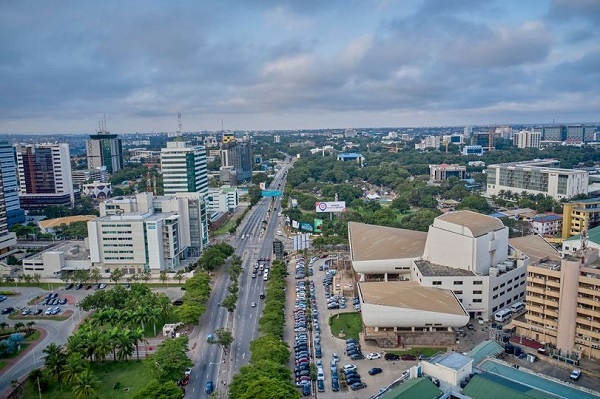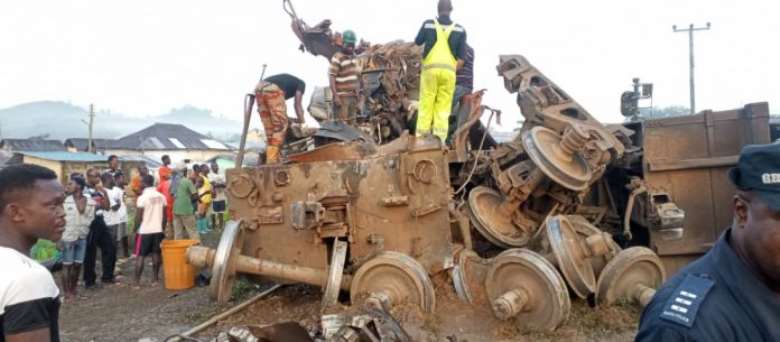From Filth to Cleanliness: The examples of cities like Kigali, others that Accra could learn from

Accra continues to face significant sanitation challenges, with filthy streets, overflowing landfills, and polluted water bodies tarnishing the city’s image.
Despite the New Patriotic Party (NPP) government’s promises and initiatives aimed at making Accra Africa’s cleanest city, progress has been sluggish.
In 2017, President Nana Addo Dankwa Akufo-Addo pledged to restore Accra’s former beauty, particularly in Jamestown and British Accra.
“The beauty of our national capital has deteriorated over the years due to various human activities that have marred this once glorious city. When I was growing up in Accra, Jamestown was the heart of the city. History has taken that away from the good people of this area.
“In our time, we are going to bring back the glory of Jamestown and British Accra. The transformation that we envision for Ghana is one that will cover all parts of the country, and Jamestown will not be left out,” he pledged.
This ambitious goal led to the establishment of the Ministry of Sanitation and Water Resources, the introduction of the National Sanitation Day for monthly clean-up exercises, and various waste management projects aimed at building waste treatment plants, enhancing waste collection services, and promoting recycling efforts.
However, critics argue that these efforts have fallen short due to inadequate funding, poor enforcement of sanitation laws, and limited infrastructure for waste management.
The situation has prompted the need to analyses comparisons between the Accra case and the cities of other African countries known for their successful stories of adequately tackling sanitation.
The Rwandan example:
Kigali, Rwanda’s capital, serves as a compelling example of successful cleanliness initiatives.
For instance, the city banned single-use plastic bags in 2008 and promoted the production of biodegradable packaging materials, while also initiating urban forestry and community-driven tree planting campaigns.
Today, Kigali stands as a visibly clean city, with residents taking pride in their environment.
A recent report by the United Nations Development Programme (UNDP) highlighted Rwanda’s waste management approach further.
“’Walking the streets of Kigali, one will find no plastic litter or overflowing trash bins,’ thanks to a system where waste is segregated at the household level and managed by private companies competing for government contracts,” the report said.
Port Louis, Mauritius:
Similarly, Port Louis, Mauritius, has achieved success through collaboration with private companies for waste collection and management.
According to a report by furtherafrica.com, the government of Mauritius heavily invests in waste management in the country.
“The Municipal City Council handles Port Louis’ cleanliness. The government allocates significant funds annually to maintain cleanliness, and tropical plants around the city contribute heavily to its immaculate nature,” it stated.
Tunis, Tunisia:
The above report further noted that Tunis, the capital city of Tunisia, is the largest and cleanest city in North Africa.
It said the city emphasizes community involvement in maintaining cleanliness, including initiatives for the use of electric vehicles and bicycles to minimize greenhouse emissions.
Accra can learn valuable lessons from Rwanda, Port Louis, and Tunis, including the importance of strong political will, community engagement, institutional collaboration, investment in infrastructure, effective policies, public-private partnerships, data-driven decision-making, innovative solutions, behavioral change campaigns, and sustainability.
By applying these lessons, Accra could overcome its sanitation challenges, enhance public health, boost economic growth, and become a cleaner, greener, and more livable city.
The transformation of Accra into a clean and sustainable city is within reach. With a collective effort and a commitment to learning from the successes of others, Accra can become a shining example of urban excellence in Africa, where citizens can thrive, businesses can flourish, and visitors can marvel at its beauty.
Source: www.ghanaweb.com





